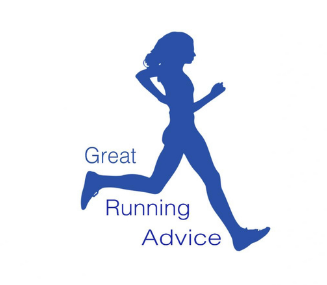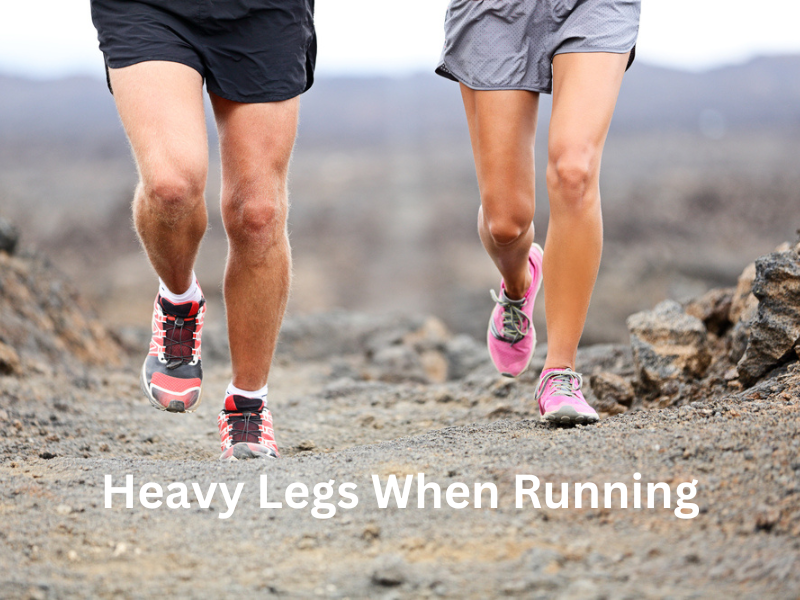We have all been out running when all of a sudden, we have that feeling that our legs are dead weights hanging from our bodies. Every stride is torture, and the further we go, the worse it gets. We need to figure out why this happens, as otherwise, running becomes more challenging than it should be, and it can stop us from running altogether if this happens continuously. I will now look at heavy legs when running in more detail, including the causes and prevention tips.
What Are Heavy Legs?
Heavy legs are legs that feel:
- very heavy
- tired, and stiff, making them harder to lift when running
- carrying extra weight all of a sudden
- painful
What Causes Heavy Legs When Running?
There are a lot of reasons that runners suffer from heavy legs when running, and these are:
- overtraining
- lacking iron
- not allowing recovery
- lack of sleep
- poor running form
- poor nutrition
- not correctly hydrated
- too much weight training
I will now look at each of these in more detail
Overtraining
If we overtrain, it can lead to heavy legs. Overtraining may be a result of a few different reasons.
- running too many miles continuously
- doing too much too soon, whether it is as a beginner runner or a runner returning after an injury break
- Increasing our mileage by more than 10% a week
- not taking adequate breaks
- doing all our runs at a hard pace
Lacking Iron
If we suffer from an iron deficiency, it can lead to heavy legs when running. This means our bodies have more difficulty supplying oxygen to our muscles on the run. When a runner experiences tiredness, fatigue, and heavy legs, the runner must check their iron levels.
Not Allowing Recovery
When we are involved in any exercise regime, including running, it is essential that we take adequate recovery breaks between sessions. After running, it is important to cool down properly and to keep some days without running as complete rest days. If we don’t do both, our legs may feel heavy when running.
Lack of Sleep
Not enough sleep can cause a lot of issues to our bodies. If we are runners, it leads to tired and heavy legs. When exercising, we need to get sufficient sleep as it helps restore the nervous, immune, skeletal, and muscular systems.
Poor Running Form
This is probably one of the main reasons that runners suffer from heavy legs. With correct running form, we run in the most efficient way possible. Running form includes posture, foot strike, and cadence; when running form is off, it puts extra stress on our bodies resulting in tired and heavy legs.
Here are the common running form causes of heavy legs when running:
- overstriding
- Heel landing first
- incorrect posture
If we overstride, our foot lands in front of our body when we run, putting extra stress and tension on the foot and leg. Try and land your foot under your body with a cadence of 180 per minute.
If we land on our heels when we run, called a heel strike, this puts extra strain on our legs. We should aim to have a mid-foot strike.
When running with incorrect posture, it leads to heavy legs. Correct posture involves keeping our core stable and balanced, keeping our shoulders relaxed and arms at right angles and beside our body. We should also keep a slight bend in our knees as we run.
Poor Nutrition
Nutrition is more important for runners who run long distances. Long-distance runners know the importance of carbohydrates in their diet, as their body converts these into energy (glycogen) which their muscles then use as an energy source. If their bodies do not have enough carbs, their bodies won’t have enough energy to sustain the effort resulting in their legs feeling very tired and heavy.
Not Correctly Hydrated
The level of hydration that the body requires varies greatly depending on the distance that we are planning to run and the weather conditions. It is essential that we replace all sweat lost by drinking water. Before we run a long-distance race, we need to drink lots of water for the few days before the race and after the race, as it is not possible to drink lots of water during the race as we will be needing the toilet, though we will drink some water during the race.
If we are not hydrated properly we will start to suffer from dehydration resulting in tired and heavy legs.
Too Much Weight Training
When we are training for a marathon or half marathon, many people say we need to do strength training to build muscle. But we can overdo it on our legs when it comes to weight training.
Heavy leg workouts can cause delayed onset muscle soreness (DOMS) which can cause that familiar heavy legs feeling in the 2 to 3 days after our workout, impacting our run.
How To Prevent Heavy Legs When Running
There are many things that we can do to make our legs feel lighter when we running:
- Warm up properly by doing dynamic stretching,
- cool down after running by doing some static stretches,
- correct our running form by running tall with a slight lean from the ankles, relaxing our shoulders, keeping our hands by our sides at 90 deg angles swinging as we move, and trying to have a mid-foot strike and a cadence of 180,
- fuel our bodies properly with carbohydrates if we are running long distances,
- hydrate the body correctly, replace any liquid lost by sweat,
- go easy on the hard leg strength workouts in the gym to eliminate DOMS,
- get a good night’s sleep each night,
- take adequate recovery breaks by taking proper rest and alternating our running sessions between hard and easy runs
- do not overtrain by doing too much too soon.
Heavy Legs FAQ
I will answer a few frequently asked questions about heavy legs. These questions relate to everyone, not just runners.
What Are Heavy Legs A Symptom Of?
Heavy legs are a symptom of poor blood circulation in non-athletes. When we suffer from poor blood circulation, blood may pool in our legs, feet, and ankle, resulting in heavy legs. The lower half of our bodies has to work much harder to transfer blood back up to our hearts as it is fighting gravity.
How Can I Stop My Legs From Feeling Heavy?
When we are at home, there are a few things that we can do at home to try and help relieve the symptoms of heavy legs.
- if overweight, try and lose weight, as obesity leads to varicose veins and a build-up of fatty acids in the arteries.
- stop smoking
- take breaks from exercise
- wear compression socks or sleeves as this helps relieve heavy legs and promote blood flow
- elevate your legs when lying down about 6 to 12 inches higher than your heart as this promotes blood flow back to the heart.
Can Heart Problems Cause Heavy Legs?
Heavy legs can be a sign of heart problems. Swelling (edema) in your lower legs is another sign of a heart problem. When your heart doesn’t work as well, blood flow slows and backs up in the veins in your legs. This causes fluid to build up in your tissues resulting in tired, heavy legs.
What Conditions Cause Legs To Feel Heavy?
The following conditions can cause legs to feel heavy:
- Varicose veins – are veins, usually in the legs and feet, that become enlarged and take on a bumpy, knotted appearance. Varicose veins often occur as we age, if overweight, if our occupation involves a lot of standing, and during pregnancy. These make legs feel very heavy.
- Peripheral Arterial Disease – occurs when fatty acids build up on the walls of the arteries, narrowing them. This can happen in any arteries, but it is generally in our legs, making them feel achy and heavy.
- Restless Leg Syndrome – is described as aching and throbbing and a feeling of having to move them when resting. The best relief is movement.
Should I Be Concerned If My Legs Feel Heavy?
If you don’t partake in running and other exercises, you should be concerned about heavy legs if you regularly suffer. I would definitely find out the cause of these heavy legs by going to the doctor, who will perform some tests and look at your medical history. Once you find the cause of your heavy legs, it is possible to start dealing with them.
Final Thoughts
We have now looked at heavy legs when running and have established what heavy legs are. If we are runners, they are caused by overtraining, lack of iron, not allowing recovery, poor running form, bad nutrition, poor hydration, lack of sleep, and too much weight training. I have also discussed various prevention tips to help prevent heavy legs.
I have also answered a few frequently asked questions for people who suffer from heavy legs but are not runners.
If you have any other questions, please ask them in the comments section below.

